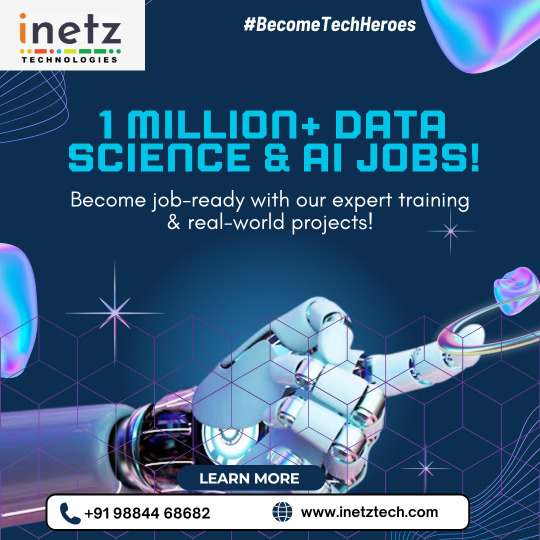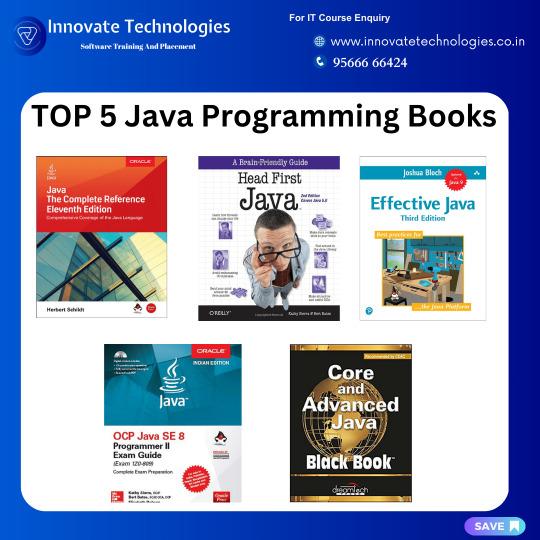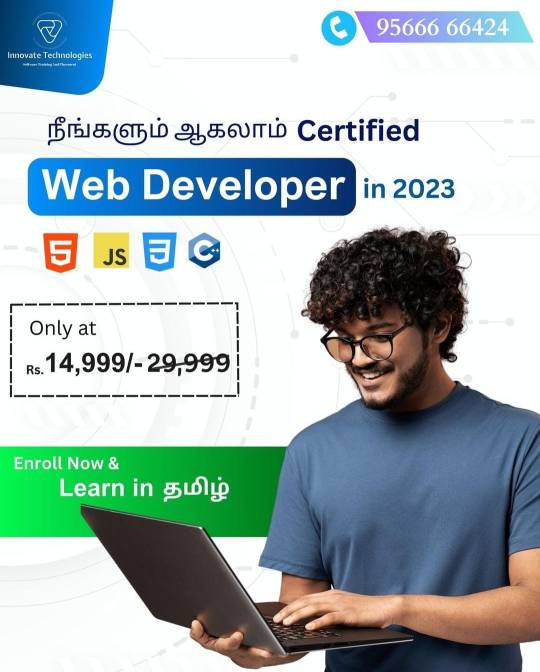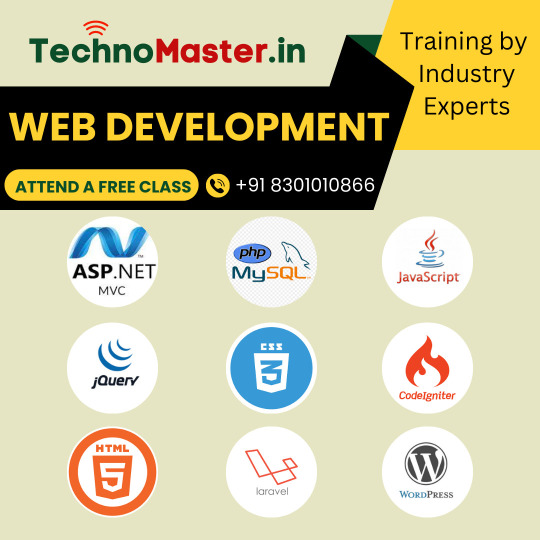#PHP Training In chennai
Explore tagged Tumblr posts
Text
Full Stack Web Developer Salary in India 2025 – Career Guide

Is web development a career good in 2025? What is the salary of full-stack developers in India nowadays? Which skills are essential to become one?
Thinking of a career as a full-stack developer? With businesses shifting online, the demand for web developers is growing rapidly. This guide covers everything you need to know, including the salary of a full-stack developer in India, city-wise salary variations, and insights into the job role. We also discuss how to start your journey in full-stack web development and the essential skills required for success.
Why Choose Web Development as a Career?
You know the beauty of a fortune, right? The demand for web developers in the market is skyrocketing along with soaring figures for every industry adopted the feature of digital transformation. Today, every single entity, may it be start-ups or multinational companies, requires highly robust online platforms, and full stack developers play a very vital part in this entire process.
What is Full Stack Web Development?
Full stack development involves working both on front sites (user interface) and backend (server, database) of a website or application. Full stack developer does entire development cycle therefore makes him or her of great value.
Define Full Stack Developer
A full stack developer is one who knows:
Frontend: HTML, CSS, JavaScript, Bootstrap
Backend: PHP, Java, Python, Node.js
Databases: MySQL, MongoDB, etc.
Tools: Git, GitHub, version control systems
They can independently design and build web applications from the scratch.
The 2025 Must-have Full Stack Developer Skills
To be a great full stack developer, one would have to be proficient in:
Frontend:
HTML, CSS, JavaScript
js, Angular, Bootstrap
Backend:
js, PHP, Python, Java
API development, server handling
Database and Tools:
MySQL, MongoDB, PostgreSQL
Git/GitHub for version control
Soft skills such as problem solving, teamwork, and communication are equally important.
Full Stack Developer Salary in India - Insight into 2025
✅ Average Salary:
6 LPA (driven by professionals in India)
✅ Monthly Salary:
75,000+ per month average
✅ Fresher Salary:
8-4.5 LPA varying with location and skills
✅ At 2-3 Years Experience:
An average of 5.9 LPA
✅ After 5+ Years:
At 9 LPA and above
Full Stack Developer Salary by Company (2025)
Infosys – ₹5.5 LPA
TCS – ₹4.9 LPA
Cognizant – ₹6.6 LPA
HCL – ₹8.2 LPA
Accenture – ₹7.7 LPA
Amazon – ₹15.9 LPA
Google – ₹26.5 LPA
Full Stack Developer Salary by City in India
Bangalore – ₹7.1 LPA
Chennai – ₹5.7 LPA
Pune – ₹6.3 LPA
Hyderabad – ₹6.5 LPA
Ahmedabad – ₹5 LPA
Jaipur – ₹4.8 LPA
Salary by Industry Type
IT Services & Consulting – ₹6 LPA
Software Product – ₹9.4 LPA
Financial Services – ₹10.9 LPA
Analytics & KPO – ₹11 LPA
Internet/E-Commerce – ₹9.2 LPA
BPO – ₹7.2 LPA
Factors Affecting Salary
Experience Level: A senior earns many times more
Size of Company: Big companies pay more - especially at MNCs
Location: Salaries are higher in metro cities
Industry: Finance, IT, and healthcare offers best packages
Skillset: Specialized skills in frameworks or new tech stacks add value
Education/Certifications: Advanced training increases salary potential
Ways to Enhance Your Salary as a Full Stack Developer
Always Learning: Keep in touch with the frameworks like React, Angular, and Node.js.
Accredited: Professionalize with certifications from cloud, security, or advanced JS frameworks.
Build a Portfolio: Locate all the real-world projects, be it from clients or personal projects.
Niche: Specialize into e-commerce, fintech, or AI-integrated development.
Improve Soft Skills: Leadership, time management, and communication go a long way.
Location: Bopal & Iskcon-Ambli in Ahmedabad, Gujarat
Call now on +91 9825618292
Visit Our Website: http://tccicomputercoaching.com/
FAQ
What is the average salary of a Full-stack developer in India?
As data shared on AmbitionBox, the average full-stack developer salary in India is ₹8.9 Lakh Per Annum (LPA).
Is full stack development a good career choice?
Yes. It’s one of the most in-demand and future-proof roles in IT.
Can a fresher earn well in this field?
Absolutely. With the right training, a fresher can start with ₹4–5 LPA.
#Computer Training Institute#Full stack web developer salary in India#software training in Bopal Ahmedabad#TCCI - Tririd Computer Coaching Institute#web development course in bopal Ahmedabad
0 notes
Text
Core Topics Covered in a Full Stack Developer Course

Highlight the Main Modules or Sections of the Course
Break down a typical full stack course curriculum. This gives readers a concrete idea of what they'll learn and assures them the course will prepare them comprehensively.
Suggested Modules:
Foundations of Web Development: HTML, CSS, and JavaScript basics.
Front-End Frameworks: Popular frameworks like React, Angular, or Vue.
Back-End Development: Server-side programming with Node.js, Python, or PHP.
Database Management: Relational and non-relational databases.
Version Control with Git: Collaborative coding and version tracking.
Project Building: Capstone projects, full-stack applications.
Deployment and DevOps Basics: Hosting, deploying applications, using cloud services.
Fullstack developer course in chennai
Full stack course in chennai
Full stack training in chennai
0 notes
Text

Inetz Technologies is one of the best software training institutes in Chennai, offering industry-relevant courses in web development, data science, digital marketing, and more. With expert trainers, hands-on learning, and placement assistance, we empower students to excel in their careers. https://www.inetztech.com/Best-PHP-Course-Chennai.html
#softwaredevelopmentcourseinchennai#web development#websitedevelopmentcoursechennai#fullstackdevelopmenttrainingchennai
0 notes
Text
https://bitaacademy.com/course/php-training-in-chennai/
0 notes
Text
Which language is the future of web development?
The future of web development likely won't be dominated by a single language but rather a combination of several technologies, each excelling in different areas. However, some languages and frameworks are poised to be particularly influential:
JavaScript (and TypeScript):
JavaScript continues to be the cornerstone of web development, especially for front-end development. It's the only language that runs natively in the browser.
TypeScript, a superset of JavaScript, is gaining popularity for its strong typing and other features that enhance JavaScript's scalability and maintainability.
Python:
Python's simplicity and readability make it a popular choice for backend development. Frameworks like Django and Flask are widely used for building web applications.
Rust:
Rust is emerging as a powerful language for web development due to its performance and safety. Projects like WebAssembly (Wasm) and frameworks like Rocket are increasing Rust's relevance in the web development space.
Go:
Go (or Golang) is known for its efficiency and performance, particularly in handling concurrent tasks. It's used by companies like Google for building scalable web services.
Java:
Java remains a strong player for enterprise-level backend development. Frameworks like Spring continue to be widely used.
Kotlin:
Kotlin is gaining traction as an alternative to Java, especially for Android development, and it's starting to be used more for backend development as well.
PHP:
Despite being one of the older languages, PHP is still heavily used, particularly with content management systems like WordPress and frameworks like Laravel.
Ruby:
Ruby, with its framework Ruby on Rails, remains a strong choice for rapid application development and startups.
Trends and Technologies:
WebAssembly (Wasm): This binary instruction format allows code written in different languages (like Rust, C++, and Go) to run on the web at near-native speed.
Single Page Applications (SPAs): Frameworks like React, Angular, and Vue.js are leading the way in creating more dynamic and responsive user experiences.
Static Site Generators: Tools like Gatsby (React-based) and Next.js (also React-based) are simplifying the process of building static websites with dynamic content.
Serverless Architecture: Services like AWS Lambda, Google Cloud Functions, and Azure Functions are making it easier to build and deploy scalable web applications without managing server infrastructure.
The future of web development will likely be shaped by how these languages and technologies evolve and how well they integrate with each other to meet the demands of developers and users.
software training course in chennai
Best software training course in chennai
Full stack training course in chennai
1 note
·
View note
Text
PHP Full-Stack Developer Certification Course
1. Introduction to Full-Stack Development
Understanding the full-stack ecosystem.
Role of PHP in modern web development.
Overview of front-end and back-end integration.
2. Frontend Development
HTML5 and CSS3: Building responsive and accessible web layouts.
JavaScript: Core concepts, DOM manipulation, and ES6 features.
Bootstrap: Designing responsive and mobile-first web pages.
React or Vue.js (Optional): Adding dynamic interactivity to your web apps.
3. Backend Development with PHP
PHP Basics: Syntax, variables, functions, and error handling.
Working with Databases: MySQL basics, CRUD operations, and PDO.
Advanced PHP Concepts: Object-Oriented Programming, sessions, and file handling.
Building APIs: RESTful APIs using PHP for dynamic data.
4. Full-Stack Integration
Combining front-end and back-end using PHP.
AJAX for seamless data exchange.
Creating and managing sessions for user authentication.
5. Database Design and Management
Normalization techniques for efficient databases.
SQL queries for complex data retrieval.
Using database management tools like phpMyAdmin.
6. Framework Mastery: Laravel
Setting up Laravel for rapid development.
Routing, controllers, and views.
Eloquent ORM for advanced database interactions.
Building scalable and secure applications.
7. Version Control with Git
Basics of Git and GitHub.
Managing code repositories and collaborating on projects.
8. Deployment and Hosting
Configuring web servers (Apache, Nginx).
Hosting on platforms like cPanel, AWS, or Heroku.
Managing domains and SSL certificates.
9. Capstone Project
Develop a complete full-stack application (e.g., an e-commerce site or blog platform).
Incorporate learned skills into a professional project.
10. Certification Exam
Online test to validate your knowledge.
Practical exam to demonstrate your development skills.
Who Should Enroll?
Aspiring full-stack developers.
Web designers aiming to enhance their back-end knowledge.
PHP developers seeking to expand their skill set.
Course Duration:
12–16 weeks (flexible learning pace).
Outcome:
Certification as a PHP Full-Stack Developer.
Portfolio of projects showcasing your skills.
Fullstack course in chennai
Fullstack developer course in chennai
Fullstack training in chennai

0 notes
Text
https://bitaacademy.com/course/php-training-in-chennai/
0 notes
Text

How do I learn full stack web development online? Learning full-stack web development online can be a rewarding journey, and there are many resources available to help you acquire the necessary skills. Here's a step-by-step guide to help you get started: Set Clear Goals: Define what you want to achieve with full-stack development. Identify the technologies you want to learn (front-end, back-end, databases). Learn the Basics: Start with HTML, CSS, and JavaScript for front-end development. Understand the Document Object Model (DOM) and basic web page structure. Front-End Development: Learn a front-end framework/library like React, Angular, or Vue.js. Understand responsive design and mobile-first development. Back-End Development: Choose a back-end language such as Node.js (JavaScript), Python (Django or Flask), Ruby (Ruby on Rails), Java (Spring Boot), or PHP. Learn about server-side development, handling HTTP requests, and building APIs. Databases: Understand basic database concepts and learn SQL. Explore both relational (e.g., MySQL, PostgreSQL) and NoSQL databases (e.g., MongoDB). Version Control: Learn Git and GitHub for version control. Understand branching and merging. APIs (Application Programming Interfaces): Learn how to consume and create APIs. Understand RESTful principles. Server Deployment: Familiarize yourself with server deployment and hosting platforms like Heroku, AWS, or DigitalOcean. Testing: Learn about testing frameworks for both front-end and back-end code. Understand unit testing, integration testing, and end-to-end testing. Build Tools and Package Managers: Get comfortable with build tools like Webpack and task runners like Gulp. Learn about package managers like npm or yarn. Learn a Backend Framework: Master a backend framework that aligns with the language you've chosen (e.g., Express for Node.js, Django for Python, Ruby on Rails for Ruby). Security and Authentication: Understand web security best practices. Learn about user authentication and authorization. Continuous Integration/Continuous Deployment (CI/CD): Explore CI/CD tools to automate the testing and deployment process. Stay Updated: Follow industry blogs, forums, and social media to stay informed about the latest developments. Build Projects: Apply your knowledge by working on real projects. This helps reinforce your skills and build a portfolio. Join a Community: Participate in online forums, communities, or coding meetups to connect with other learners and professionals. Practice, Practice, Practice: Regularly practice coding and problem-solving. Use platforms like HackerRank, LeetCode, or CodeSignal. Portfolio: Create a portfolio showcasing your projects and skills. This is crucial when applying for jobs. Explore Advanced Topics: Depending on your interests, delve into advanced topics such as microservices, containerization (Docker), and serverless architecture. Consider Formal Education: If you prefer a structured learning path, consider enrolling in online courses, bootcamps, or pursuing a degree in computer science. Remember that learning web development is an ongoing process, and staying curious and adaptable is key. As technology evolves, keep updating your skills accordingly.
full stack developer course in chennai
full stack training in chennai
full stack development course in chennai
0 notes
Text
Python or PHP. Which is Better?
PHP and Python are both popular programming languages with their own strengths and weaknesses. PHP is a general-purpose scripting language that is widely used for web development, while Python is a general-purpose programming language that is used for a wider range of applications, including web development, data science, and machine learning.
Here is a more detailed comparison of PHP and Python:
PHP
Pros:Easy to learn widely used mature ecosystemGood performance
Cons: Not as powerful as PythonNot as flexible as PythonSecurity concerns
Python
Pros:PowerfulFlexibleEasy to learn growing ecosystemGood security
Cons: Not as widely used as PHPNot as mature ecosystem not as fast as PHP
Ultimately, the best language for you will depend on your specific needs and preferences. If you are looking for an easy-to-learn, widely used language for web development, then PHP is a good choice. If you are looking for a powerful, flexible language that can be used for a wider range of applications, then Python is a good choice.
Here are some examples of what PHP and Python are used for:
PHP
Web development
Content management systems (CMS)
E-commerce
Dynamic websites
Python
Web development
Data Science
Machine learning
Artificial intelligence
Automation
Scientific computing
If you are not sure which language to choose, I recommend starting with Python. Python is a great language for beginners and it can be used for a wide variety of projects. Once you have learned Python, you can then decide if you want to learn PHP.
it course in Chennai, it institute in Chennai, it training center in Chennai, it courses in Chennai
1 note
·
View note
Text
BEST SOFTWARE TRAINING IN CHENNAI
Good Place For Campus Training.

Discover the proficiency of Izeon Innovative in delivering exceptional Mobile App Development Solutions. Step into a world of innovative and user-centric mobile applications that cater specifically to your unique requirements. Our dedicated team excels in crafting bespoke designs, implementing advanced functionalities, and optimizing your app for maximum performance. Enhance your digital footprint with our cost-effective packages. Explore our services today and unlock the full potential of your Mobile App.
Check out our various training courses:
Data Analytics Training in Chennai
Full Stack Developer Training in Chennai
Amazon Web Services Training in Chennai
Software Testing Training in Chennai
Selenium Automation Testing Training in Chennai
Python Training in Chennai
Framework Training in Chennai
PHP Training in Chennai
Java Training in Chennai
Artificial Intelligence Training in Chennai
IoT Training in Chennai
BlockChain Training in Chennai
Kubernatics Training in Chennai
Know about our other services:
Software Development Services in Chennai
Mobile Application Development Services in Chennai
Cybersecurity Solutions Services in Chennai
Digital Marketing Services in Chennai
IT Automation Solutions Services in Chennai
Comprehensive Cloud Computing Services in Chennai
Web Hosting Services in Chennai
SEO Services in Chennai
Web Design and Development Services in Chennai
Stay Updated with Our Future Technology Blogs: Stay ahead of the curve with our informative blogs on the latest technology trends:
Software Development Training in Chennai
Full Stack Development Training in Chennai
Artificial Intelligence Training in Chennai
Network Engineer Training in Chennai
DataScience Training in Chennai
Linux Administrator Training in Chennai
AWS Training in Chennai
Ethical Hacking training in Chennai
Python Training in Chennai
Selenium Automation Testing Training in Chennai
Cybersecurity Training in Chennai
Read more
1 note
·
View note
Text
What Does It Take to Become a Full Stack Developer in 2025?
The tech industry continues to evolve rapidly, and the role of a full stack developer remains one of the most sought-after in 2025. With the increasing demand for professionals who can navigate both the frontend and backend of web development, understanding what it takes to excel in this field has never been more critical.
Understanding the Full Stack Developer Role
A full stack developer is a tech generalist who works on both the client side (frontend) and server side (backend) of applications. They bring together design, coding, and database management skills to create seamless digital experiences.
In 2025, companies are looking for developers who can:
Build responsive and intuitive user interfaces.
Create scalable and secure backend systems.
Collaborate effectively with cross-functional teams.
Stay updated on emerging technologies and frameworks.
Key Skills and Technologies
To become a successful full stack developer in 2025, you need proficiency in:
Frontend Technologies:
HTML, CSS, and JavaScript: The foundational languages of web development.
Frontend Frameworks/Libraries: React, Angular, and Vue.js continue to dominate.
Responsive Design: Mastering tools like Bootstrap or Tailwind CSS to ensure mobile-first designs.
Backend Technologies:
Programming Languages: Node.js, Python, Ruby, Java, and PHP.
Frameworks: Express.js, Django, Ruby on Rails, and Spring.
APIs: Experience with RESTful and GraphQL APIs.
Databases and Storage:
SQL databases like MySQL and PostgreSQL.
NoSQL databases like MongoDB.
Cloud storage solutions like AWS S3 or Google Cloud Storage.
DevOps and Deployment:
Familiarity with Docker, Kubernetes, and CI/CD pipelines.
Cloud platforms such as AWS, Azure, or Google Cloud.
Soft Skills:
Strong problem-solving abilities.
Effective communication and collaboration.
Adaptability to new technologies and workflows.
Steps to Becoming a Full Stack Developer
Learn the Basics: Start with HTML, CSS, and JavaScript. Understand how websites are structured and styled.
Pick a Frontend Framework: Dive into React, Angular, or Vue.js to build dynamic user interfaces.
Master Backend Development: Learn server-side programming languages and frameworks. Practice building APIs.
Understand Databases: Learn how to design, query, and manage databases effectively.
Explore Deployment: Get hands-on experience with deploying applications using cloud platforms.
Build Projects: Create real-world projects to showcase your skills. A portfolio speaks louder than a resume.
Stay Updated: Follow industry trends, join developer communities, and continue learning.
Challenges and How to Overcome Them
Keeping Up with Rapid Changes: Technology evolves quickly. Dedicate time weekly to learn and experiment with new tools.
Balancing Frontend and Backend: Allocate practice time equally between both areas to maintain a well-rounded skill set.
Imposter Syndrome: Remember, every developer started somewhere. Celebrate your progress and keep improving.
The Future of Full Stack Development
In 2025, full stack developers are pivotal in shaping digital transformation. From AI-driven applications to immersive web experiences, the opportunities are vast. Companies value developers who can think holistically and bridge the gap between design and functionality.
By acquiring the right skills, staying adaptable, and building meaningful projects, you can carve a successful career as a full stack developer in 2025. The journey requires dedication, but the rewards—from job satisfaction to competitive salaries—make it worthwhile.
Fullstack course in chennai
Fullstack developer course in chennai
Fullstack training in chennai

0 notes
Text

Best Web Development Course in Kerala to Learn in Online / Classroom Format and Get Certified from Best Web Development Training Institute TechnoMaster known for Quality Training in Reasonable Fees and Placements!
Click Below:-
Best Web Development Course Online Training
TechnoMaster (the training division of Nestsoft Technologies, a Kerala based online IT training institute) has been instrumental in shaping the lives of over 10,000 students who attended our IT training programmes since 2001.
We provide short term, crash and long term online / offline IT courses on all IT technologies with real time internships at convenient schedules and reasonable fees.
Learn 15+ Tools & Technologies! Front end Development (HTML, HTML 5, CSS, SEO on Page, Javascript, jQuery & Bootstrap), PHP & Adv. PHP, MySQL, Wordpress, React.js on VS Code and XAMPP server.
Software companies require real time project experience and not just the basic subject knowledge from faculties without any internship on projects. Hence we provide live sessions by successful IT experts working in leading MNCs to ensure you have the skills and experience to deal with real time projects.
In addition to these, Through our job portal (JobsNEAR.in) we aim at helping you get placement in Chennai, Mumbai, Cochin, Infopark, Technopark, Cyberpark, Bengalaru, Delhi, United Arab Emirates (UAE), USA, UK, Australia, Canada, Germany, Ireland, Singapore, Switzerland, Kuwait, Saudi Arabia, Bahrain, Qatar, Oman etc.
#web development#javascript#HTML5#CSS#SEO onpage#HTML#JQuery#Bootstrap#PHP#MySQL#Wordpress#React JS#coding#programming#TechnoMaster
0 notes